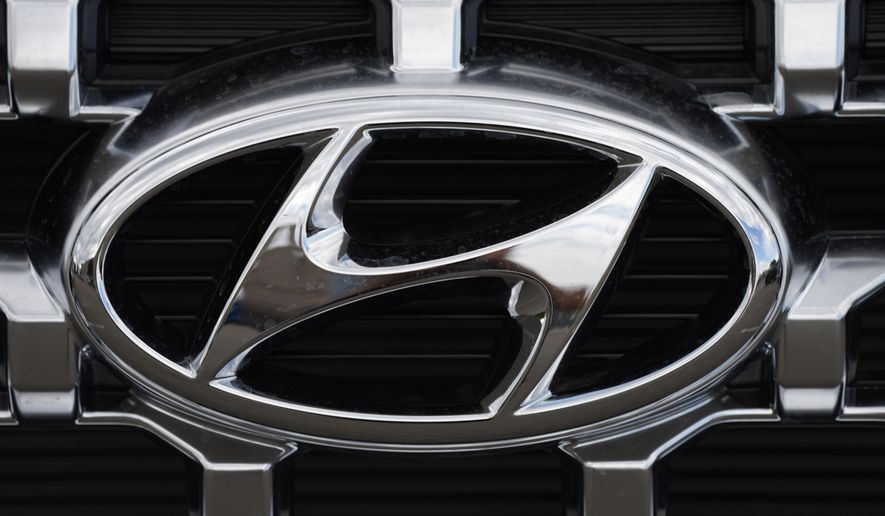A TikTok challenge that shows how to steal some Kia and Hyundai models by using a USB cord has led to rising thefts and a spate of lawsuits.
Kia models made between 2011 and 2021 and Hyundai models made between 2015 and 2021 lack an immobilizer, which prevents most cars from being stolen via hot wiring. The affected models use a physical ignition system.
In those models, removing the casing on the bottom of the steering column can allow thieves to start a car’s ignition with the port end of a USB cord. And the alarms in the models don’t activate if the back windows are broken, allowing for quick entry.
The TikTok joy rides of the “Kia Boys” have helped spread awareness of the theft method.
“The TikTok thing kind of pushed it to the next level. Even prior to TikTok, the scam — the method was already out there,” Los Angeles Police Department Sgt. Juvey Mejia told the Los Angeles Daily News.
Thefts of the models have risen by more than 300% in Charlotte, North Carolina and more than 750% in Chicago, from a year ago, according to Los Angeles Magazine.
LAPD Chief Michel Moore on Tuesday advised vehicle owners to buy theft deterrents.
“For the community, the challenge of owning one of these vehicles, we’re asking that you purchase a steering wheel lock. You can also install an alarm system,” Mr. Moore said, according to KABC-TV, a Los Angeles ABC affiliate.
Kias and Hyundais, sister brands owned by the Korean Hyundai Motor Group, have contributed heavily to the overall rise in auto thefts this year.
“In just 2022, at least 1,634 more Kia and Hyundai vehicles have been stolen so far this year, an 85% increase over the year before of thefts of just those types of cars. That’s almost three-quarters of the entire increase in stolen cars of any make and model in L.A. this year: Car thefts in the city are up about 15%, or 2,279 more cars,” according to the Los Angeles Daily News.
The perpetrators are often younger, focusing on the thrill rather than on stripping parts for cash.
“They’ll drive over in a stolen car, and then if they find another one, they’ll park that one and then drive the new stolen car. Or if there are multiple people in the car, they’ll take another, so each person has one,” Detective Joseph Ruwe of the Delhi Township Police Department in Ohio told the Cincinnati Enquirer.
Sgt. Mejia told the Daily News that “with a lot of these Kias and Hyundais, that’s the one thing that stood out to us. They’re not being stripped. Usually, thieves are stealing components from the vehicles and selling them to chop shops. These seem to be more for joy riding.”
Hyundai Motor Group said it is aware that “our vehicles have been targeted in a coordinated effort on social media,” according to the Los Angeles Daily News.
Vehicle owners in multiple states have filed class-action lawsuits against the companies over the ease with which their cars are being stolen.
The arguments made by the plaintiffs range from safety, in that the cars can move without a real key in the ignition, to manipulative pricing, because consumers bought cars unaware of the critical lack of anti-theft features.
Suits have been filed in Iowa, California, Texas, Nebraska, Florida and other states.
“Kia and Hyundai chose not to include what almost every other manufacturer includes in any model of their cars called an immobilizer device, and these vehicles can easily be started without a key,” Cincinnati attorney Jeffrey Goldenberg told the Cincinnati Enquirer.
Missouri attorney Kenneth McClain told the Los Angeles Daily News that the two brands “knew for a decade that leaving the immobilizers off was saving them $200 a car. But they were exposing their customers to an unreasonable risk.”
In a suit filed Thursday in Minnesota, attorney George Chronic noted that the USB cords needed to hotwire the vehicles are, thanks to phone charging, nearly ubiquitous.
“Considering how many people charge their cell phones in their cars, the necessary instrument needed to steal a defective vehicle is usually readily available to any thief,” Mr. Chronic wrote in the complaint, according to Courthouse News.
In response to the thefts and resulting lawsuits, both brands issued statements pointing out their new models include engine immobilizers.
Hyundai noted that “engine immobilizers are standard equipment on all new Hyundai vehicles,” while Kia said, “All 2022 models and trims have an immobilizer applied either at the beginning of the year or as a running change,” according to KABC-TV.
• Brad Matthews can be reached at bmatthews@washingtontimes.com.




Please read our comment policy before commenting.